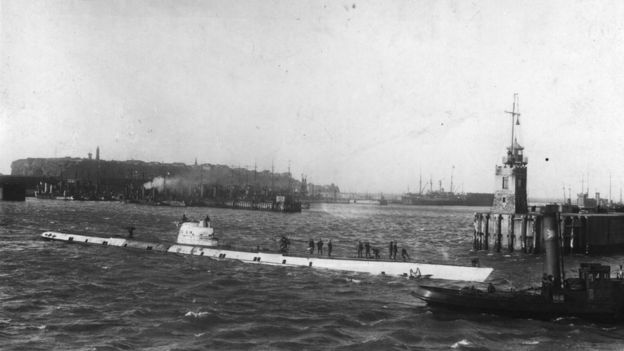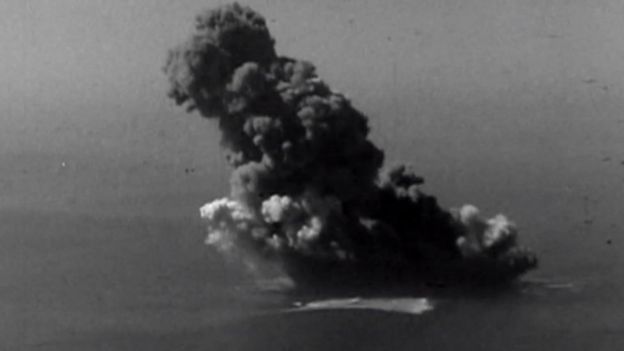Heligoland: the island Britain tried to sink
From its seizure at the height of the Napoleonic Wars in
1807, until 1890, it was a British colony, dubbed the "Gibraltar of the
North Sea" and considered of similar strategic importance as its
Mediterranean equivalent.
Ruled directly from Whitehall and populated with British
citizens, Heligoland boomed as trade complemented the traditional fishing
industry. But foreign ownership of a territory so close to the German shoreline
came to be viewed as an affront to German national pride. Despite Queen
Victoria personally demanding its retention ("The people have been always
very loyal… soon nothing will be secure") at the end of the 19th century
the island was gifted to a delighted Kaiser Wilhelm II. In return, the British
Empire gained Zanzibar and swathes of East Africa.
The relationship changed dramatically at the conclusion of
the Second World War. As one of the four
victorious allied powers after World War Two, Britain was governing a large
area of occupied Germany. The British
sector included Heligoland, which had long been a source of diplomatic tension
between the two countries.
 |
| Heligoland during WWII |
So, when in 1947 the British needed a safe place to dispose
of thousands of tonnes of unexploded ammunition, Heligoland must have seemed an
obvious choice. The code-name for the plan was Operation Big Bang.
The Heligoland Big Bang is the largest non-nuclear
detonation to date. Heligoland had been
a German naval fortress, and ‘Operation Big Bang’ was intended to make a big
point. The island was a symbol of
Prussian militarism, and nothing represents its end than its obliteration by thousands
of tonnes of British explosives.
 |
| The explosion |
The explosion was so massive that it smashed windows in
Hamburg, 93 miles from the island.
Comments
Post a Comment